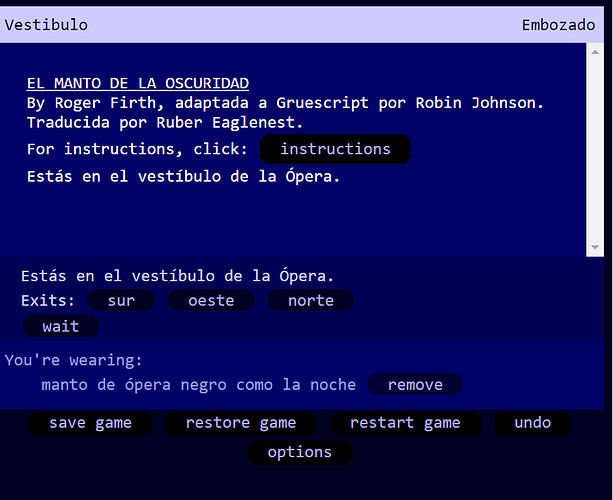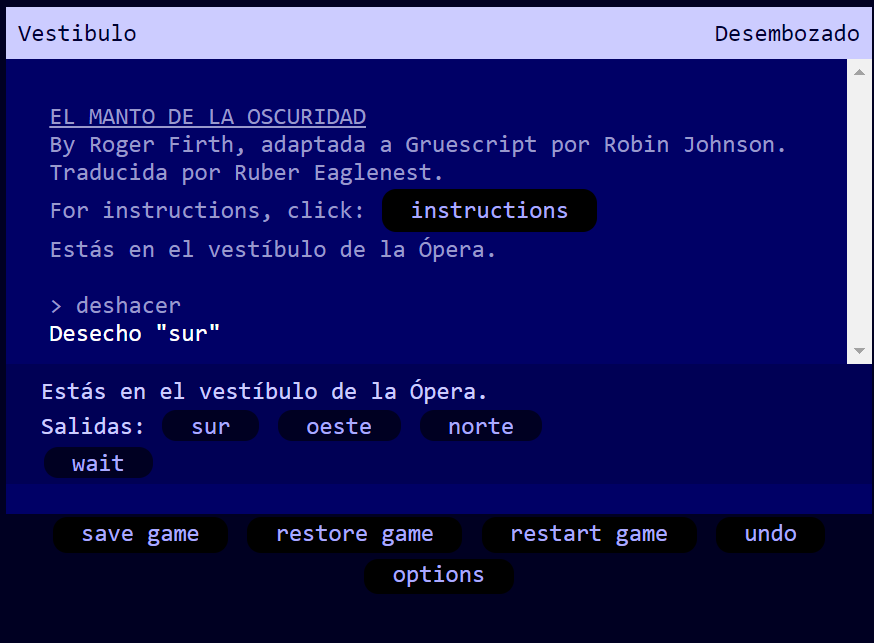So, ok, let’s use this thread for our efforts localizing Gruescript to other languages.
I have Cloak of darkness already translate to Spanish. But of course, as is, the game shows a lot of messages in English. Maybe they are hardcoded, or maybe they are in a table of system messages. That last thing would ease our work on it a lot. Or, if those messages can’t be still modified in-script we can help to build whatever system that allows customizing all hardcoded messages.
Another idea is to use .gru libraries that we can import into our games, so authors do have not to copy and paste the new language definitions on each game. Having a spanish.gru, french.gru italian.gru that overrides the default system messages could be really nice.
I know Robin says it is open source and such, but I think a proper official system (although contributed by us) for changing the language could benefit a lot the system.
Anyway… let’s start, I have already some doubts.


